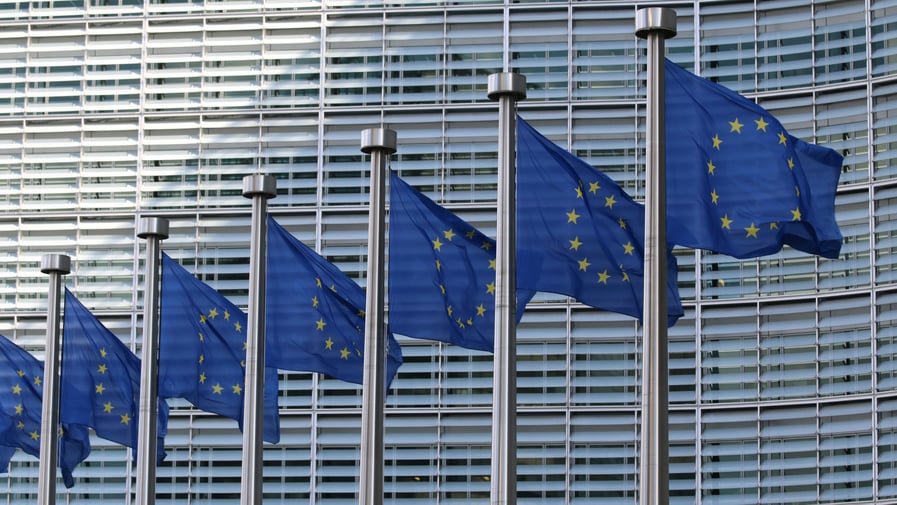Key news in this edition:
- CSDDD passes crucial vote in EU Council
- Japan finalises its Basic Guidelines on Impact Investment
- ‘Foreign agents’ laws undermine institutions in Eurasia’s traditional democratic stronghold
Europe
CSDDD passes crucial vote in EU Council
On 15 March, the Council of the EU approved the Corporate Sustainability Due Diligence Directive (CSDDD), which establishes a corporate due diligence duty and sets obligations for large companies to identify, bring to an end, prevent, mitigate, and account for negative human rights and environmental impacts in their own operations, their subsidiaries and their value chains. The initial draft of the document failed to achieve the qualified majority needed in the Council earlier this year, and had to be watered down.
The previous version of the directive applied to companies with 500 employees and a turnover of EUR 150 million, whereas in the approved document those numbers have been raised to 1,000 employees and a turnover of EUR 450 million. The final draft also removed the high-impact sector approach, which would have expanded the scope of the directive to include companies that do not meet the aforementioned employee or turnover requirements but operate in defined high-impact sectors, such as textiles, agriculture, and extraction of minerals.
Another significant amendment relates to the narrowing of the due diligence requirement to a “chain of activity” rather than a value chain, limiting the scope to only specifically listed parts of the companies’ value chains. There is also a slower implementation period planned, based on the size of companies. Companies with 5,000 employees and EUR 1,500 million turnover will be required to comply with the directive in three years; whereas companies with 3,000 employees and EUR 900 million turnover will have four years; and companies with 1,000 employees and EUR 450 million turnover will have five years to comply.
Once formally approved by the European Parliament and the member states in mid-April, the Directive will enter into force on the twentieth day following its publication in the EU Official Journal. This will open the period of implementation at the national level, which is expected to be completed by 2026.
Sub-saharan africa
British International Investment extends USD 100 million trade finance to support food security in Africa
On 25 March, the British International Investment (‘BII’), the UK’s development finance institution, announced a USD 100 million finance facility with the Eastern and South African Trade and Development Bank (‘TDB’). The financing is aimed at strengthening the economic outlook in the region by investing in agricultural development, boosting trade finance and addressing food insecurity.
The facility will allow the TDB to provide capital to local businesses and financial institutions to fund trade transactions such as import and export activities, commodities and essential services. By increasing access to finance, local companies will be able to buy materials including fertilizers and machinery, helping to increase output and cross-border trade, food production, job creation and overall economic resilience in Africa.
The financing facility with TDB is the fourth of its kind with the BII and will help address ongoing supply chain issues, forex challenges and rising climate-related vulnerabilities in the region.
RUSSIA & CIS
‘Foreign agents’ laws undermine institutions in Eurasia’s traditional democratic strongholds
On 2 April, Kyrgyz President Sadyr Japarov signed into law a controversial ‘foreign agents’ law, adopted by the parliament two weeks prior. The law is modelled on Russian legislation, introducing significant reporting requirements for NGOs that receive foreign funding and engage in what authorities deem to be political activities. The law has faced significant criticism from advocacy groups and foreign governments alike, who claim that the government will be able to suspend activities of NGOs and independent media without obtaining a court decision. These efforts could significantly jeopardise foreign assistance to the country.
Similarly, on 3 April, Georgia’s ruling Georgian Dream party announced that it will once again attempt to pass a nearly identical ‘foreign agents’ law, which was thwarted by mass protests the year before. Growing pressure on civil society in Kyrgyzstan and Georgia indicate an increasingly authoritarian turn within two of the region’s traditional democratic strongholds and risk undermining the civic institutions upon which ESG conscious investors rely.
Asia Pacific
Japan finalises its Basic Guidelines on Impact Investment
On 29 March, Japan’s Financial Services Agency (‘FSA’), the financial market regulator in Japan, published the final version of its Basic Guidelines on Impact Investment. The document standardises definitions and best practices for impact investment, that investors can refer to when structuring, financing, and promoting collaboration for investment projects. The guidelines encourage every impact investment to clarify its intended social and environmental impact, and set out quantitative and qualitative terms to identify, measure and manage the impact. While making impact investments, the investors should also further support the investee companies in utilising and strengthening their social or environmental impact potential. However, the guidelines do not set out any eligibility criteria, thresholds, or performance objectives for impact investments.
Korea FSC unveils measures to boost climate finance
On 19 March, South Korea’s Financial Services Commission (‘FSC’) announced that it will invest a total of KRW 432 trillion (c. USD 319 billion) until 2030 for climate finance, assisting the country’s goal to achieve carbon neutrality by 2050, and facilitating Korean business in making their low carbon transitions. Out of the KRW 432 trillion, KRW 420 trillion will be provided by five state lenders and funds, marking a 67-percent increase from the previous five years. It is estimated that this initiative will reduce the nation's greenhouse gas emissions by 85.97 million tons by 2030.
The country’s five major commercial banks and Korean Development Bank, one of the state lenders, will also establish a KRW 9 trillion (c. USD 6.66 trillion) Future Energy Fund to finance the construction of new green energy facilities. The FSC also assess that South Korea now faces a three-year gap in climate technology advancement compared to other advanced countries. To tackle this issue, a Climate Technology Fund of KRW 3 trillion (c. 2.22 billion) will also be set up with the contributions made from the Korean banking sector.
Americas
US Department of Energy announces USD 6 billion investment to decarbonise the industrial sector
On 25 March, the US Department of Energy announced that the Biden-Harris Administration will invest USD 6 billion in 33 projects to decarbonise energy-intensive industries across more than 20 states. The new investment is part of President Biden’s Inflation Reduction Act and Bipartisan Infrastructure Law, and was designed to contribute to Biden-Harris Administration’s climate and domestic manufacturing agenda. With the new investment, the US government aims to reduce industrial greenhouse gas emissions, create more high-quality union jobs, support industrial communities, and increase manufacturing competitiveness.
Brazil and France formalised acts to increase environmental cooperation
On 28 March, Brazil and France, represented by each respective president, signed a partnership strengthening their environmental cooperation in the Amazon region near the Brazilian and French Guyana border. The agreement ensures action to preserve natural areas and biodiversity, restore degraded areas, and recover and monitor endangered species. Additionally, it agrees measures to combat biopiracy, trafficking of wild animals and plants, and joint actions against illegal mining.
The agreement is one of 21 bilateral acts that cover various aspects of future cooperation between France and Brazil. These include a plan to reiterate the need to limit the increase in the planet’s average temperature, and to reform the international financial architecture, with more public and private resources to combat poverty.






